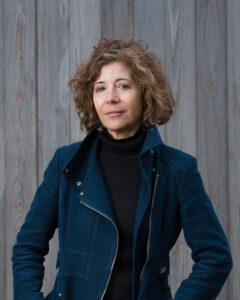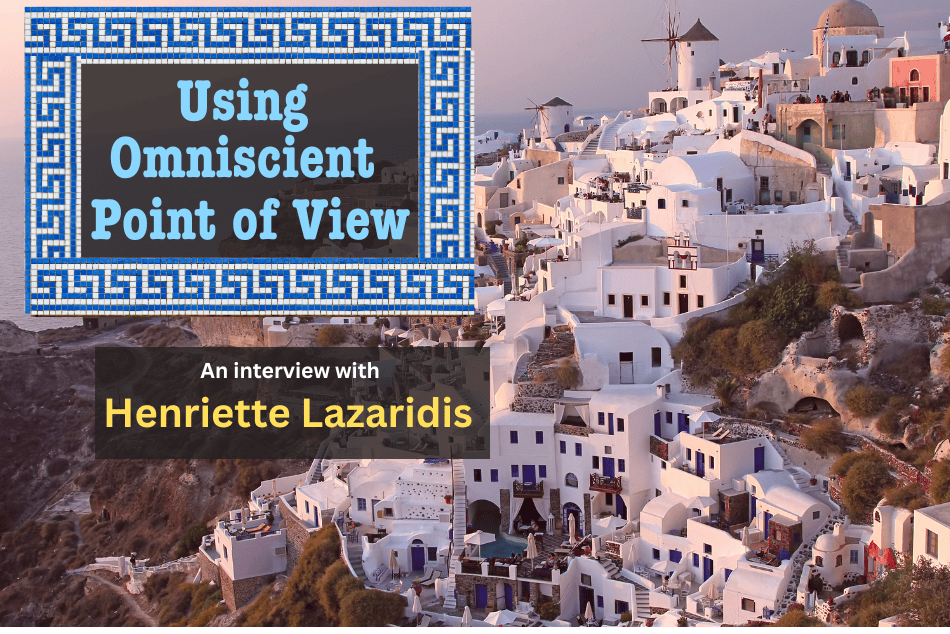There are two basic guidelines for writing. One: You have to know the rules to break the rules. Two: anything can work if you make it work.
And choosing point of view encompasses both of those rules. If you have taken a writing class recently, (and shout out to those who attended our Career Authors seminar at MIT Endicott House,) you’ll know the critical importance of understanding point of view. You can only know what one person knows. You must choose on character through whose eyes and hears and heart and mind the reader will understand the story.
It’s so critical to a novel’s success that we discuss about point of view often on Career Authors: here, and here, and here. And here. But one of the things you often see in our essays is that we generally mention omniscient point of view as something to avoid.
In omniscient point of view, the narrator has complete knowledge and awareness of all the thoughts feelings and actions of all the characters in the story. In other words, it can be in everyone’s point of view, as well as in a high-flying all-knowing unnamed point of view which allows for a narrator’s voice to offer information and comments.
It’s risky, teachers will say. It’s old fashioned. It can’t work.
But see above, rule two. Anything can work if you make it work.
Best-selling author Henriette Lazaridis’ new book is in omniscient point of view, and I could not wait to ask her about it.
HANK PHILLIPPI RYAN: Why did you choose omniscient point of view?
HENRIETTE LAZARIDIS: When I began writing my third novel Last Days in Plaka, the voice in which the story announced itself to me was omniscient. Someone–I had no idea who–was telling this story of two women in Athens in the summer of 2018. “This is not her story,” the book began in my head one August night. “She stole it from the young woman who did not know until the end that it was hers.” The novel came into existence right from the start as the tale told by someone who knew it all, who knew the end–and who knew even before I did that the character of the young woman would come to the understanding of a loss at the novel’s conclusion.
HANK: Is this the first time you’ve done this?
HENRIETTE LAZARIDIS: My debut novel The Clover House is told through two points of view: first-person present tense, and close-third past tense. My second, Terra Nova, again takes two points of view for its story, and they are both close-third.
HANK: It’s interesting, though, in first and third, that you, the author, know everyone’s point of view. And sometimes the reader knows more than the characters.
HENRIETTE LAZARIDIS: It has always been interesting to me to play with the authority that I do have as the writer of the novel and the subjectivity that I need to find for the character-centric narrative voice. I’ve always been fascinated by the gap between what the reader knows and what the character knows. Close-third seems to me to be a good way to explore that. In many ways, both Terra Nova and The Clover House are about that gap and the impossibility of ever closing it.
HANK: And so?
HENRIETTE LAZARIDIS: In August of 2020, when the first two sentences of Last Days in Plaka came into my head, they spoke with the authority that belonged not to any of the characters I didn’t even have names for yet, but to the narrator. After the first rush of writing those down, I hesitated about embarking on an omniscient narration. Did I really want to assume this authoritative stance for the length of an entire novel? Did I want to forego the interiority I could achieve with a first-person narrator?
HANK: Yes, I wondered if you had any doubts about it.
HENRIETTE LAZARIDIS: As I dove into the draft, I began to discover the many strengths of the omniscient narrative voice. I realized that I wanted this novel to unfold quickly, and that an omniscient narrator can rely on summary more than a close-third narrator can, and that summary was the way to narrative speed. In addition, I wanted to be able to observe cultural and individual customs and opine on them. So my narrator takes the stance of someone probably Greek who might roll their eyes at the foibles of the culture, while also expressing deep tenderness and affection for them.
I wanted the narrator to move back and forth across the timeline of the novel, sometimes laying out information from further along, and sometimes keeping a secret–and making it clear that that secret was being kept. Since the story ended up revolving around the question of discerning fabrications from the truth, my narrator would play with the reader’s awareness–not to the extent that the reader felt manipulated, I hoped, but certainly using secrets and revelations to create suspense and narrative drive.
HANK: But doing a whole book in omniscient. Yikes.
HENRIETTE LAZARIDIS: Omniscient wasn’t easy. There was the pitfall of head-hopping, and the risk that I would adopt a narrative distance so great that the reader couldn’t see the characters as individual people. It was all well and good when my characters were together in the same place. Then, I could watch them all at once, and tell their communal story.
But for the narrative to move from the experience of 82-year-old Irini to that of 26-year-old Anna, when they were separate from each other, I had to find effective ways to segue.
To avoid head-hopping, I used space as a connector between the two women. For instance, in one moment, Irini is doing something in a part of Athens very near where Anna is. Though neither woman knows this, the narrator comments on that fact. In a way, I move the camera from Irini, up above her, then find Anna in view, and then come down beside her, and in this way, I segue rather than hop.
HANK: You do have some iconic predecessors. Did you read those to prepare? What did you learn?
HENRIETTE LAZARIDIS: My favorite example of this technique comes from Dickens, actually, so often thought of as stodgy even though his narrative technique encompassed a great deal of experimentation. In Bleak House, he narrates a scene that has a crow hovering over it, then follows the crow, and then sets the narration down in the new place–with different characters–where the crow has flown. It’s cinematic before there was cinema.
Ian McEwan does something similarly cinematic in Atonement when Robbie goes down to the kitchen in the Tallis house to shine his shoes. The narrative voice here is “omniscient” (if you’ve read Atonement you know why I put it in quotation marks), and follows Robbie down to visit his mother, stays with her for a bit, even narrating some backstory about her, and then follows Robbie out of the room. McEwan is a great reminder that omniscient isn’t actually omniscient; it’s omnipotent. It doesn’t have to know everything; it can do everything, or whatever it wants. And sometimes what it wants to do is stay very close to one person and then another.
HANK: That’s fascinating. And a little chilling. It’s like—oh, I almost said a Greek chorus. Do you think that POV is becoming more popular?
HENRIETTE LAZARIDIS: No conversation about omniscient point of view can be complete without an acknowledgement of all the utterly modern and subjective ways in which writers are using the technique now. Think of sections of Aminatta Forna’s Happiness, or Mick Herron’s Slow Horses series, or Andrew Sean Greer’s Less. Or the queen of innovative omniscience: Kate Atkinson. Take a look at Shrines of Gaiety where the narrator’s phrasing (“in triumph rather than in sorrow”) is picked up by a character in her thoughts! If this isn’t evidence that the omniscient point of view belongs to the contemporary age of post-everything, I don’t know what is.
HANK: Yeah. That’s a lot of power. One last question: we always hear about how the author’s voice should not be heard in a novel. That the author should disappear. What do you think about that?
HENRIETTE LAZARIDIS: When I’m asked which character I identify with in Last Days in Plaka, I sometimes hesitate. Until I realize it’s the narrator I most closely identify with. For better or for worse, that omniscient narrator is my stand-in, the closest thing to me as author present in the story. With omniscient voice, I’m able to foreground the act of storytelling in a way that feels traditional and also utterly modern.
HANK: Have you ever thought about using the omniscient point of view? As you now know, it is not as easy as it might sound. Tell us your thoughts on the Career Authors Facebook page.

Henriette Lazaridis is the author of The Clover House (a Boston Globe bestseller), Terra Nova (which the New York Times called “ingenious”), and Last Days in Plaka, which was a Good Morning America Buzz Pick. She earned degrees in English literature from Middlebury College, Oxford University, where she was a Rhodes Scholar, and the University of Pennsylvania. Having taught English at Harvard, she now runs the Krouna Writing Workshop in northern Greece, and is the co-founder of Galiot Press. Her essays and articles have been published in Elle, Forge, Narrative Magazine, The N ew York Times, New England Review, and others, and earned her a Massachusetts Cultural Council Artists Grant. An avid athlete, Henriette writes about athletic and creative challenges at The Entropy Hotel on Substack. Visit her website: www.henriettelazaridis.com.
ew York Times, New England Review, and others, and earned her a Massachusetts Cultural Council Artists Grant. An avid athlete, Henriette writes about athletic and creative challenges at The Entropy Hotel on Substack. Visit her website: www.henriettelazaridis.com.
For important information on her brand new publishing company, click here.
And here .





